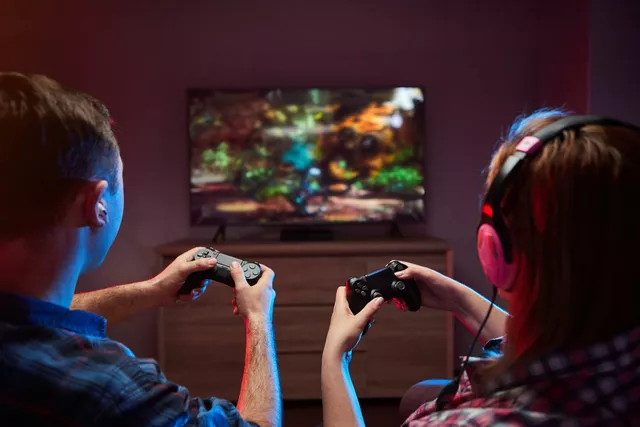Exploring the Mechanics of Free-to-Play Games: A Comprehensive Guide
Free-to-play (F2P) games have become increasingly popular, especially with the rise of mobile gaming. But what are F2P games and how do they work? In this comprehensive guide, we'll explore the mechanics of F2P games and how they differ from other types of games.
What Is a Free-to-Play Game?
A Free-to-Play (F2P) game is one that can be downloaded and played for free, with no upfront cost. Players can enjoy the game and all its features without spending any money. However, F2P games usually have in-game purchases, often in the form of virtual currency, which players can buy with real money.
How Do Free-to-Play Games Make Money?
Most F2P games make money through in-app purchases. These can include virtual currency, special items, or upgrades. Players can purchase these items with real money, which is then used to support the game. Developers also make money from ads, which are often displayed in the game. Ads are usually displayed when the player is waiting for something, such as after a match or when the game is loading.
What Are the Benefits of Free-to-Play Games?
One of the key benefits of F2P games is that players can try the game before committing to a purchase. This allows players to get a feel for the game and decide if it is something they want to invest in. F2P games also often have no ceiling on how much a player can spend, meaning players can continue to enjoy the game as long as they want. Finally, F2P games are often more accessible than other types of games, as they can be played on a wide range of devices.
What Are the Drawbacks of Free-to-Play Games?
The biggest drawback of F2P games is that they can be heavily monetized. This means that players can often be encouraged to spend money in order to progress in the game. Additionally, F2P games can sometimes be less polished than other types of games, as developers are often focused on monetization rather than game quality.
Are Free-to-Play Games Right For You?
Whether a F2P game is right for you depends on a variety of factors. Think about how much time you want to spend playing the game, and how much money you are willing to spend. F2P games can be great for casual players who want to get a taste of a game before committing to a purchase, but can be less appealing to serious gamers who want a fully-fleshed out gaming experience.
A Comprehensive Look at the Pros and Cons of Free-to-Play Games
Free-to-play (F2P) games have become increasingly popular over the last decade, with millions of players worldwide enjoying them. But what is a free-to-play game, and how do they work? In this article, we'll take a comprehensive look at the pros and cons of free-to-play games and how they work.
Pros of Free-to-Play Games
The biggest pro of free-to-play games is that they are available to everyone. Players don't need to spend money to access the content, making them an ideal choice for casual gamers or those on a budget. Additionally, F2P games are often more accessible than traditional paid games, with fewer technical requirements and simpler controls. This makes them ideal for those who may not be comfortable with more complex gaming experiences.
Another major advantage of F2P games is that they are often more social than traditional paid games. This is because many F2P games are played online and require players to communicate with each other to succeed. This can lead to players forming strong bonds and relationships with their fellow gamers, creating a sense of community.
Cons of Free-to-Play Games
The biggest downside of free-to-play games is that they often have a limited amount of content. This can be a major issue for those who enjoy games with a lot of replayability, as the content can become stale after a while. Additionally, many F2P games have microtransactions, which can make them pay-to-win experiences if players are willing to spend money.
Another potential problem with F2P games is that the quality can be inconsistent. This is because developers are often working on tight budgets and deadlines, making it difficult for them to produce high-quality content. Additionally, F2P games often require a constant stream of updates and new content to remain relevant, which can be a challenge for developers.
How Do Free-to-Play Games Work?
Free-to-play games are typically supported by microtransactions, which are in-game purchases of items or services. These can range from cosmetic items such as skins and costumes to more powerful items such as weapons or upgrades. Players can also purchase additional content, such as levels or missions, or premium services such as game boosters. Many F2P games also have advertisements, which can provide a steady stream of income for the developer.
In addition to microtransactions, F2P games also often have a "freemium" model, where players can access the basic content for free but must pay to access additional content. This model offers players the chance to play the game without spending any money, while also providing a way for the developer to monetize the game.
Finally, many F2P games are "live-service" games, which are constantly updated with new content and events. This helps keep the game fresh and engaging for players and allows developers to monetize the game through microtransactions and other in-game purchases.
A Comprehensive Guide to Understanding How Free-to-Play Games Work
Free-to-play (F2P) games are a great way for gamers to get their fix without having to spend a lot of money. But, how do F2P games actually work? In this comprehensive guide, we’ll be exploring how F2P games work and how they can benefit gamers.
What Are Free-to-Play Games?
Free-to-play games are exactly what they sound like – games that are free to play. Gamers don’t need to pay anything upfront to start playing. These games are often supported by in-game purchases and advertising. F2P games can range from mobile games to massive multiplayer online (MMO) games.
The Pros And Cons Of Free-to-Play Games
As with any type of game, there are pros and cons to playing F2P games. Some of the pros include: no upfront cost, the ability to try the game and decide whether or not to invest money, and plenty of content available. Some of the cons include: in-game purchases can be expensive, there are often paywalls, and microtransactions can disrupt game balance.
How Free-to-Play Games Make Money
The main way that F2P games make money is through in-game purchases. These usually come in the form of currency, characters, items, or boosts. These in-game purchases give the player an advantage, or make the game easier to progress. Additionally, F2P games may also make money through advertising or subscription services.
Tips For Playing Free-to-Play Games
If you’re thinking about playing a F2P game, here are some tips to help you get the most out of the game: resist the urge to make in-game purchases, play with friends to make the game more enjoyable, and don’t be afraid to take breaks when you need them. Additionally, it’s important to remember that the game should be fun, so don’t take it too seriously.
In Conclusion
Free-to-play games are a great way for gamers to get their gaming fix without breaking the bank. While they can be fun and engaging, it’s important to remember that F2P games can also be expensive if you’re not careful. By following the tips outlined in this guide, you’ll be able to get the most out of your F2P gaming experience.





